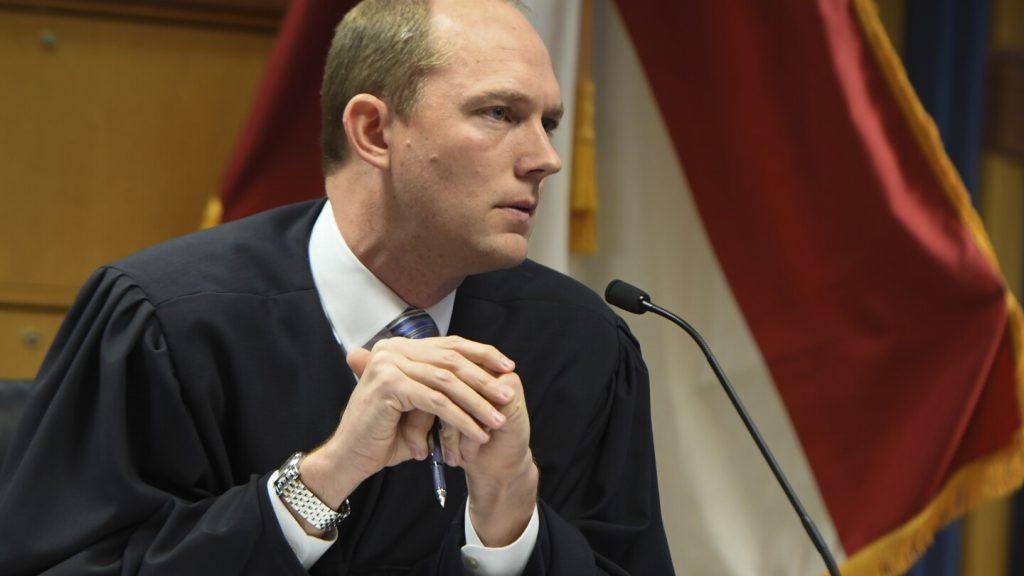Johnson’s disqualification as a candidate to run against the judge presiding over former President Donald Trump’s 2020 Georgia election interference case has sparked controversy, with plans for an appeal in the works. Georgia Secretary of State Brad Raffensperger ruled that Tiffani Johnson is not qualified to challenge Fulton County Superior Court Judge Scott McAfee, citing her failure to appear at a hearing on a challenge to her eligibility. Despite this setback, Johnson remains determined to appeal the decision to both the Secretary of State and Fulton Superior Court. McAfee, who was appointed by Republican Gov. Brian Kemp, faces another challenger in civil rights attorney Robert Patillo for the upcoming nonpartisan election in May.
The challenge to Johnson’s qualifications was filed by a Fulton County voter, Sean Arnold, based on the Georgia Constitution’s requirement that judges must reside in the geographical area they serve. Johnson listed her home address in DeKalb County but claimed no consecutive years of residency in Fulton County in her qualification paperwork. According to the law, superior court judges must live in the district at the time they take office, with specific qualifications related to age, legal practice, and Georgia residency. The administrative law judge, Ronit Walker, found Johnson to be unqualified due to her absence at the hearing and her failure to establish eligibility for office, leading to Raffensperger adopting the ruling in his decision to disqualify her.
The law stipulates that if a candidate is deemed unqualified, their name must be withheld or stricken from the ballot, with notices placed at polling places informing voters of the disqualification. In McAfee’s case, his high-profile involvement in the prosecution of Donald Trump by Fulton County District Attorney Fani Willis adds further significance to the upcoming election. Trump and 18 others have been indicted for allegedly attempting to overturn the 2020 presidential election results in Georgia, with several individuals entering guilty pleas and Trump maintaining his innocence. As the trial date is yet to be set, McAfee’s reelection is closely watched due to the case’s political ramifications.
Johnson’s campaign emphasizes her experience as a prosecutor and defense attorney, positioning herself as a qualified candidate in civil and criminal law matters. Despite the challenge to her residency qualifications, Johnson’s team stands by her eligibility and intends to pursue an appeal through the proper legal channels to contest her disqualification. With the race for superior court judge heating up in the Atlanta Judicial Circuit, the outcome of Johnson’s appeal and McAfee’s reelection bid will shape the future of the court’s leadership and its role in important legal cases, including the high-profile prosecution of Donald Trump and his associates. The legal battle over Johnson’s candidacy underscores the significance of local elections and the impact they can have on national political issues.


